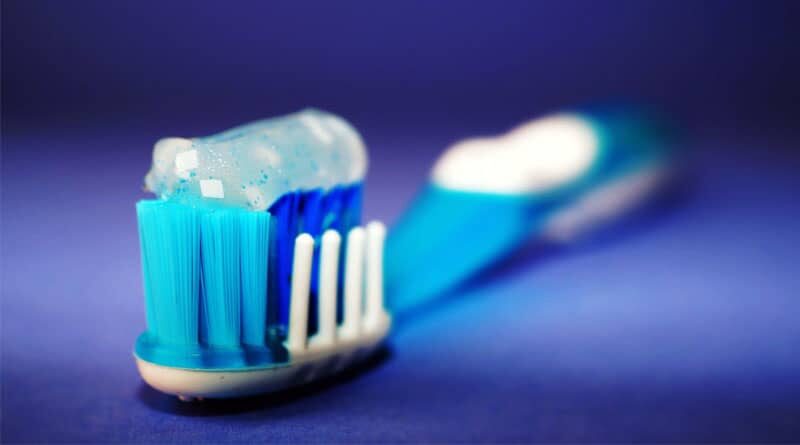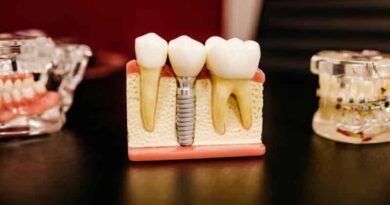Everything You Should Know About Fluoride
Fluoride is a mineral that is present in the environment. It is also added to water supply, toothpaste and mouthwash to prevent tooth decay. Fluoride supplements can prevent tooth decay in children and adults.
Fluoride has a beneficial effect on the teeth through direct contact and also protects the developing teeth (which are still under the gums) from the possible development of carries. Fluoride works in two ways, by preventing excessive bacterial growth and tooth mineralization. In this article, we will tell you the benefits of fluoride.
Table of Contents
Health Benefits of Fluoride
Regular and proper fluoride intake is beneficial for our oral health.
It prevents bacterial overgrowth
Fluoride reduces the overgrowth of certain bacteria, which may cause tooth decay(1). Fluoride, which is an ionic element, lowers the pH level in the mouth. It means that the environment in the mouth becomes more acidic and therefore less hospitable to bacteria. Fluoride inhibits Streptococcus mutans, Streptococcus sanguinis, and Porphyromonas gingivalis.
It mineralizes teeth
Fluoride(2) interacts with teeth and forms a material called fluorapatite, which mineralizes teeth. Mineralization is a chemical curing process and it prevents tooth demineralization. You should also know that although fluorapatite is not a natural component of teeth, it is beneficial and doesn’t harm the teeth. The mineralization caused by fluoride supplements also helps teeth resist decay that can be caused by food, beverages, and bacteria.
Read: Foods that Damage Teeth
Possible side effects
It is not recommended to take more than 10 mg of fluoride per day. The effect of excess fluoride varies depending on the amount of fluoride exposure and whether it occurs chronically, over a long period of time, or abruptly.
Chronically high levels of fluoride can affect both teeth and bones. However, acute consumption of large amounts of fluoride can lead to more dangerous side effects.
Read: Home Remedies for Cavities
Fluorosis
Fluorosis can appear at any age and is usually manifested by white spots or lines on the teeth. Sometimes fluorosis can lead to a rough texture on the tooth surface. Fluorosis is mainly a cosmetic problem and is not considered harmful to the teeth.
Fluorosis doesn’t improve on its own and is very difficult to correct. If you get this disease, be careful with home remedies, such as gels or creams for teeth whitening, because they can lead to further tooth discoloration.
In order to avoid fluorosis, do not expose your teeth to excess fluoride. Brush your teeth no more than three times a day, don’t use mouthwash more often than several times a day and be sure to spit out mouthwash for 30 seconds.
Read: Teeth Whitening Methods
Bone fragility
It has also been found that excessive fluoride intake causes a rare disease called skeletal fluorosis. This condition is characterized by fragile bones and stiffness of the joints. This means that skeletal fluorosis may enhance the risk of bone fractures.
Acute fluoride toxicity
Acute fluoride toxicity can lead to indigestion(3), nausea, vomiting, and diarrhea. In young children, these consequences can progress and even become life-threatening. Acute toxicity is rare because the concentration of fluoride in water, toothpaste, or mouthwash is too low to cause an overdose. However, a person can get dangerous amounts of fluoride through industrial chemicals.
Read: Tea Tree Oil for Tooth Pain
Dosage
The recommended daily dosage of fluoride depends on age:
- 0.7 mg for toddlers
- 3 mg for adult women
- 4 mg for adult men
Fluoride supplements
If you can’t drink water that comes from normal public water supplies, you may not receive the protection against tooth decay. In this case, you can use OTC fluoride toothpaste and mouthwash. Your doctor or dentist may also prescribe fluoride for oral or topical use.
In communities where it is difficult to supplement the water supply with sufficient fluoride, the mineral can be added to milk or salt. These methods are also effective in reducing the incidence of tooth decay.
Recommended Articles:




